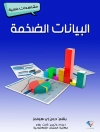This is a volume of chapters on the historical study of information, computing, and society written by seven of the most senior, distinguished members of the History of Computing field. These are edited, expanded versions of papers presented in a distinguished lecture series in 2018 at the University of Colorado Boulder – in the shadow of the Flatirons, the front range of the Rocky Mountains.
Topics range widely across the history of computing. They include the digitalization of computer and communication technologies, gender history of computing, the history of data science, incentives for innovation in the computing field, labor history of computing, and the process of standardization. Authors were given wide latitude to write on a topic of their own choice, so long as the result is an exemplary article that represents the highest level of scholarship in the field, producing articles that scholars in the field will still look to read twenty years from now. The intention is to publish articles of general interest, well situated in the research literature, well grounded in source material, and well-polished pieces of writing.
The volume is primarily of interest to historians of computing, but individual articles will be of interest to scholars in media studies, communication, computer science, cognitive science, general and technology history, and business.
Tabla de materias
1. The Time of Computers: From Babbage and the 1830s to the Present, 2. Expanding the Usable Past.- 3. The Modem that Still Connects Us.- 4. Values, Media, and Genres for Standardization.- 5. Talking About Metadata Labor: Social Science Data Archives, Professional Data Librarians, and the Founding of IASSIST.- 6. Gender Bias in Computing.- 7. An Archetype for Outsiders in Technology Commercialization.
Sobre el autor
Dr. William Aspray is a professor in the Department of Information Science at the University of Colorado Boulder. His other Springer publications include
Women and Underrepresented Minorities in Computing, Participation in Computing,
Formal and Informal Approaches to Food Policy and
Food in the Internet Age.












